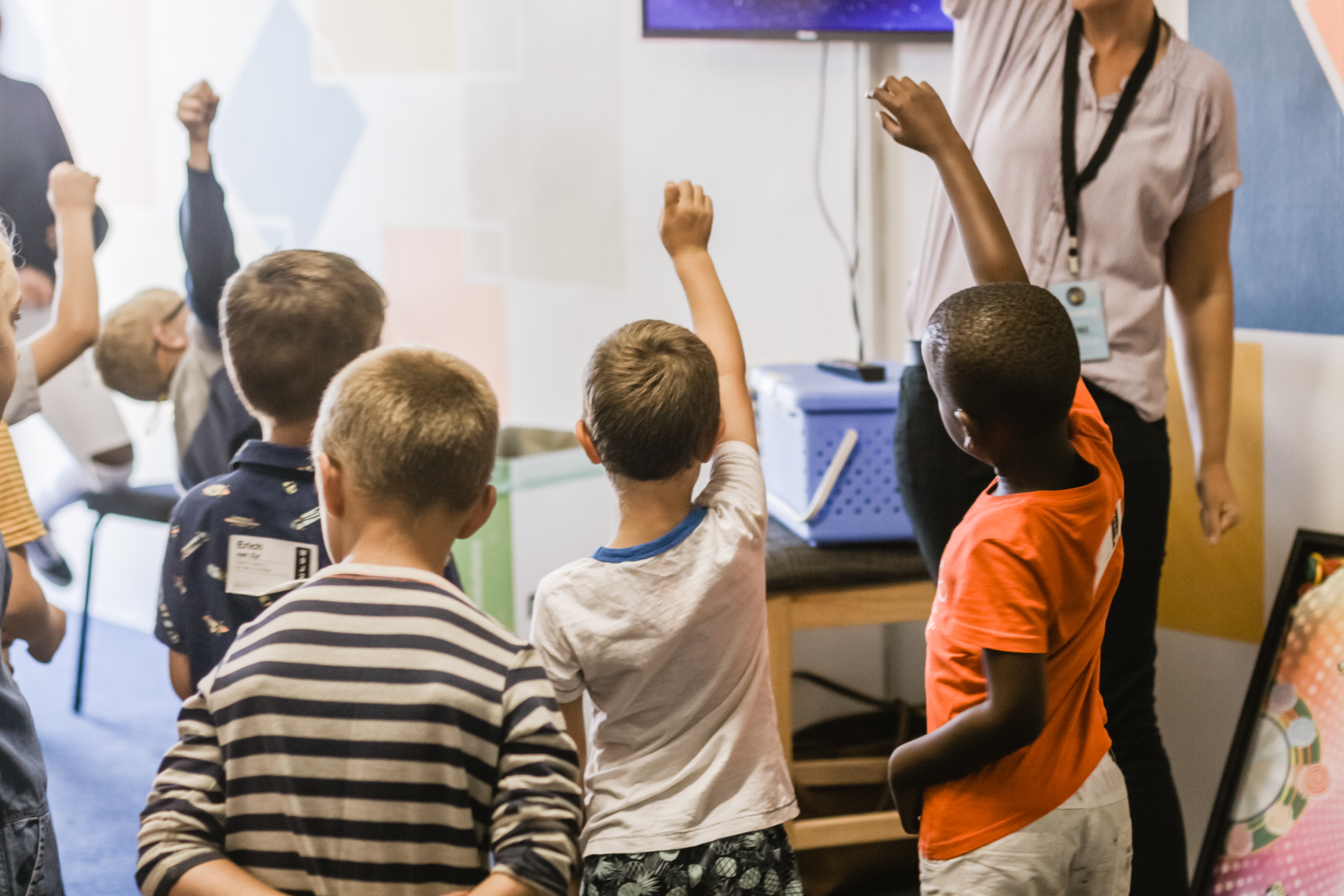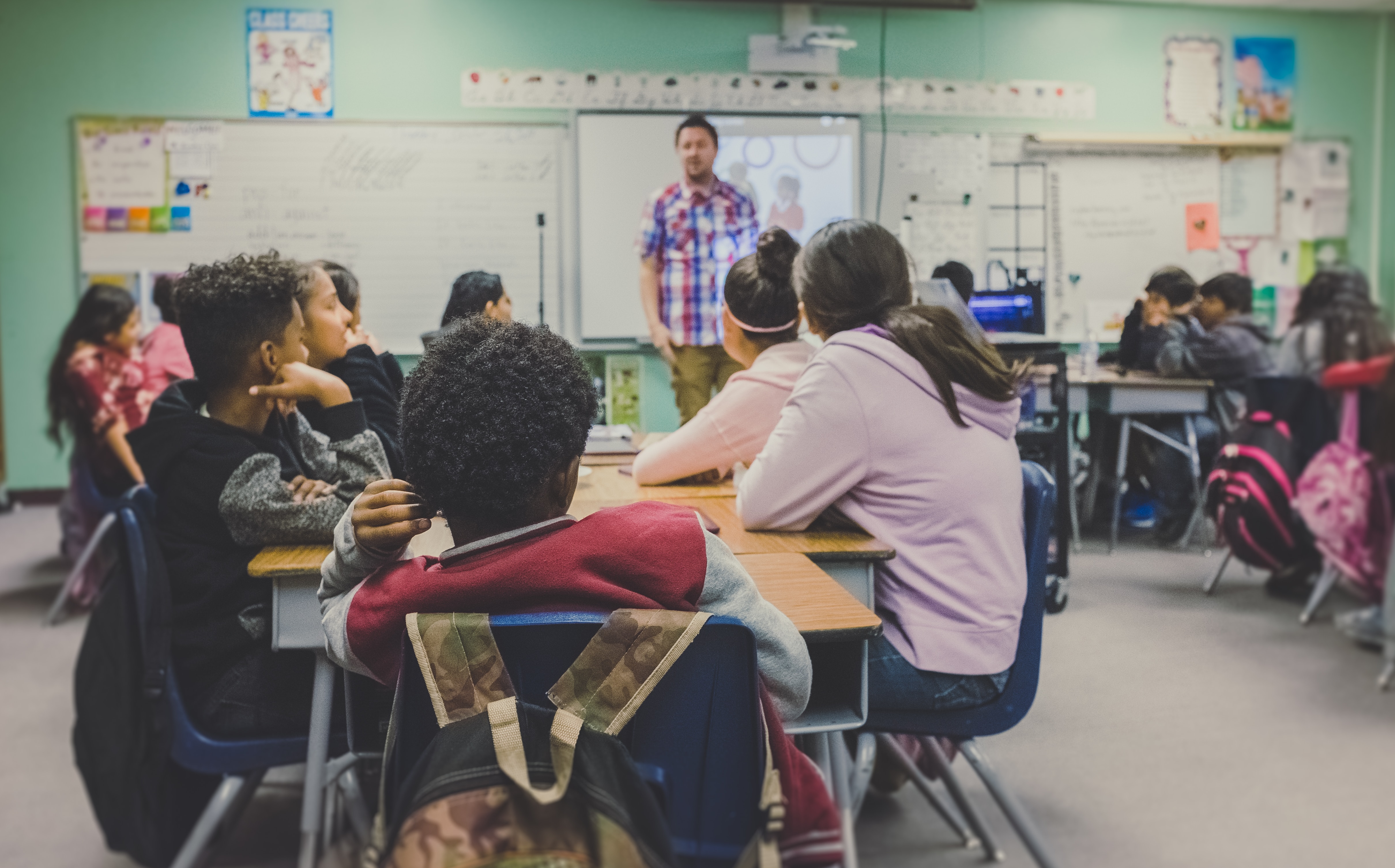It happened again. This time it was two mass shootings in two different cities on the same day. As an adult, it's hard to process, but what should you tell your kid?
In second grade my son experienced his first school lockdown. There was a threat to a number schools that day. The threat was proven to be a hoax, but the school went ahead with the lockdown. My child was one of several children ages five to seven that were piled into one classroom. The shades were drawn, and kids were told to not to make a sound for one hour. It was hot in the room, the windows were closed. They were not all quiet, many did not understand the gravity of the situation, some did. Children cried in the classroom. By pick up, some parents were in an uproar over the drill since the threat had been debunked.
Despite how we feel as parents, most experts recommend talking to your children about school lockdowns in advance.

According to Azmaira Maker, Ph.D. of Aspiring Families, "It is important for parents to explain the procedures of a lockdown so that children are not surprised, anxious, or scared when it does occur in schools. If a child knows what to expect, they are less likely to be anxious. "
Talk to Your Children Before School Starts
I can't stress this enough, my child came home not knowing if the threat was real, or if he was in danger. Naturally, he wanted answers. I compared his drill at school to Anne Frank, and how she had to remain quiet and hide for years. "It's hide and seek for real," I told him. This clicked. We even practiced lockdowns at home. He hid under the table for short periods of time, and remained quiet. Periodically we talk about dangerous situations and steps we need to take to stay safe.
What Should I Tell My Kid?
Azmaira Maker, Ph.D. states, "Parents need to be careful about not alarming kids. Presenting a lockdown as a ‘drill that keeps everyone at school safe in case of an emergency’, is probably sufficient. Explaining the mechanics of the drill (loud alarms, go under the desk, go to the field, or whatever the specifics are), will guide the child."
Preparing Kindergarten Students for Their First Drill
Dr. Maker recommends a softer approach when talking to young children, "Keeping the conversation simple, concrete, and neutral will help minimize the child’s anxiety and alarm. Parents should have a few sentences ready to say to the child, such as ‘all schools have safety rules and practices. These are called drills. The drills keep kids and teachers safe by helping them know what to do in an emergency, such as a fire or a shooting.” Parents can show simple images of drills to their children so they can visualize it and parents can walk them through the drill. Practicing this 2-3 times on different occasions should be sufficient to help children be aware and know that this is something typical in schools and that they should not be afraid."
Dr. Maker's 6 Tips For Parents to Explain a Mass Shooting
1. Kids know what happened. Keeping it a ‘secret’ or making up a story about it may only add confusion and mistrust. Create healthy dialogues, we can invite children to ask adults any questions they might have.
2. Children often worry, “Will it happen to me? Can it happen at our school or in our neighborhood?” We can reassure and comfort children by telling them that this scary event is not an everyday occurrence, and that children are safe.
3. We can use simple words and simple sentences that avoid hate, racism, and fear. Young children grasp issues better when it is explained in emotionally neutral, brief, and clear ways. We can tell children that this is a very sad event that should never have happened.
4. We can reinforce and tell children that adults are working hard to keep all children safe.
5. We can turn our televisions off while children are in the room, and make sure adult conversations take place with only adults in the room.
6. We can help children mourn and grieve, and process their thoughts and feelings via books on loss, puppets, drawings, and stories.

Gun Shootings and Suicides in San Diego
Dr. Maker has been a psychologist for over twenty years, and some of her patients have been affected by high profile high school suicides and gun shootings. "Many of the kids I have worked with knew the students or attend the schools. Some families were members of the temple in the recent San Diego hate shooting. It has been very sad and traumatic, and the level of anxiety related to gun violence and hateful mass shootings seems to have increased significantly in children and adults," said Dr. Maker.
Explaining Mass Shootings to Older Children
"The older the child, the more sophisticated the response. However, even with teenagers we need to be careful to not shift them into anxious or paranoid modes in our conversations."
School Lockdowns & Special Needs Students
Dr. Maker states, "If kids or teachers have had a history of trauma — even if you tell them we’re doing a lockdown drill Tuesday and this is what’s going to happen — when they’re physically in the situation they may re-experience the danger, and their physical trauma memories in their bodies and brain may just fire up. Hence, in that situation the child may feel helpless, as they may re-experience the pain and feel the danger, as those are the markers that define trauma. Hence, it is very important for schools to work with psychologists and education specialists in the planning of drills. Schools may even be able to identify ahead of time, through school counselors, children who should not participate, whether because of trauma or sensory issues."
Talk to your children before their first drill. If they have already experienced one, give them reassurance and guidance. Kids take a cue from their parents so try to remain calm. We are all in this together, and as we continue to protect our kids as best as we can on our end, we all can collectively hope for a brighter future. I for one, refuse to accept that this is the new normal.
For more information about Dr. Azmaira Maker, Ph.D. & Aspiring Families
Visit: https://aspiringfamilies.com/
Tel. 858-531-1122
12625 High Bluff Drive, Suite 105
San Diego, CA 92130
Stay Informed Join Central San Diego Macaroni Kid It's Free!


